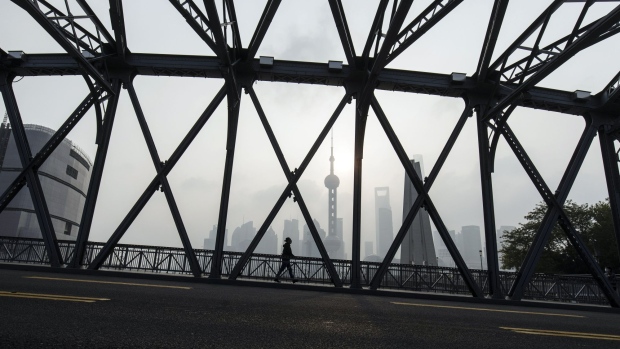Nov 2, 2022
China Stocks Slide on Covid Zero Adherence, Hawkish Fed Comments
, Bloomberg News

(Bloomberg) -- If October was all about the Communist Party Congress, the flavor of this month for Chinese stock markets is the speculation around the nation’s reopening.
Equities rallied over the first two days of November as traders disgruntled by months of losses found succor in unverified social media posts that signaled Beijing is planning to move away from its stringent Covid Zero strategy. Stocks slumped again on Thursday as China’s top health body reiterated its commitment to the policy. A weak global backdrop given the Federal Reserve’s hawkish comments didn’t help.
Even as Chinese authorities have given no indication of a change in their stance, the rumor mills have brought a sense of enthusiasm among embattled investors who have been seeking reasons to scoop up stocks in one of the world’s worst-performing major markets.
A gauge of Chinese shares trading in Hong Kong slumped 3.5% on Thursday after a two-day advance of over 8%. The Hang Seng Index also lost more than 3%. Stocks tied to reopening -- including casinos and retailers -- and technology, were among the worst performers in the market.
“The reopening bounce was bound to hit air pockets lower without a formal acknowledgment from party officials,” said Stephen Innes, a managing partner at SPI Asset Management. Yet even after the adherence to Covid Zero by health officials, “investors are still thinking about where there is smoke, there is fire. And will be looking for any subtle signs the reopening is getting pushed up.”
Li Ning Co. and Haidilao International Holding Ltd. plunged at least 3.5% each in Hong Kong, while a Bloomberg index of Macau casino shares fell as much as 3.1%. On the mainland, the CSI 300 Index lost 0.8%.
Down 37% this year, the Hang Seng China index is the worst performer among more than 90 global equity gauges tracked by Bloomberg. It capped a fourth straight month of losses in October.
The last couple of weeks have brought wild swings for Chinese markets -- first with a historic rout following policy disappointment from the Communist Party Congress, then a sudden surge over the last two days, which saw turnover in the world’s second-biggest stock market climbed above the 1 -trillion yuan ($137 billion) mark on Wednesday, the first time in about two months.
“The market is very short-term oriented,” Thomas Fang, head of China global markets at UBS Group AG, said on Bloomberg Television, adding that Covid is “definitely one of the key focus” areas for the market.
All of this came even as China had shown little indication of changing its official Covid stance, with the latest lockdown of the area around iPhone assembler Foxconn Technology Group’s main plant in Zhengzhou highlighting that economic growth still takes a back seat over pandemic control.
“I think the market may be misinterpreting the pace of reopening, as it may only come gradually like in Hong Kong, with a reduction in quarantine times likely as the first step,” said Marvin Chen, a strategist at Bloomberg Intelligence. “Local governments are still likely to adhere to Covid-Zero until broader measures are announced.”
--With assistance from Charlotte Yang and Catherine Ngai.
©2022 Bloomberg L.P.





